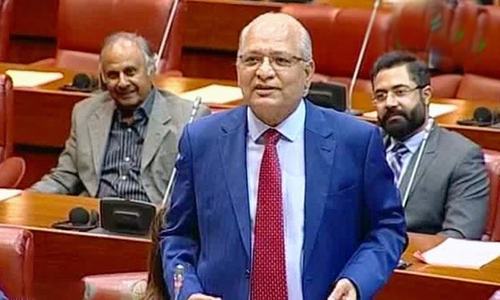PAKISTANI Christians and Muslims sat together at a restaurant in the heart of Rome for a dinner in honour of the Archbishop of Karachi, Joseph Coutts, who was newly appointed cardinal by Pope Francis.
“We are all brothers and sisters, we believe in the same God, and we stand united under the same flag,” said an emotional Durdana Shireen, a Pakistani Muslim who has been living in Italy since 1978. “Let’s not forget that the white stripe on it represents religious minorities.”
While thanking the crowd, Cardinal Coutts highlighted the unity, love, and mutual respect amongst the Pakistani diaspora in Rome and added, “This beautiful community is an example of what I hope Pakistan will be like one day, Insha Allah.”
Take a look: These 7 points explain the Supreme Court's decision to free Aasia Bibi
That day seems further away as the world waits to find out how and if the Aasia Bibi case will come to an end. It’s not often that Pakistan makes headlines for good news and it briefly managed to do so the day after the acquittal.
The Italian press, which due to the presence of the Vatican and Italy’s strong Catholic heritage has followed the case step by step for the past eight years, celebrated Aasia Bibi’s verdict on the front page of almost every main national newspaper. People, press, and politicians all around the world urged the Pakistan government to ensure her safety and invited her to request for asylum.
The invitation that most surprised everyone in Italy was the one that came from deputy prime minister and minister of interior Matteo Salvini. This most popular and populist politician in the country is the head of the failed Northern separatist, now turned nationalist, League party.
Over the years, Salvini hasn’t changed what he says, just who the object of his hate is: first it was the southern Italians, accused of being ignorant, backward, stealing jobs and raising crime rates; and now it’s immigrants. The only difference is that this time he found fertile land, in a country that was the first for migrant arrivals in Europe until last year, where irresponsible media coverage of the phenomenon has contributed to forming a biased perception that Italians are somehow being invaded by immigrants and their culture and traditions eroded by Islamic or foreign values.
Salvini swept the polls in the March 2018 elections with the Trumpian slogan “Italians first” and vowed to stop the “immigrants’ invasion”. For someone who built his entire campaign around these issues, how could he get away with inviting Aasia Bibi in?
That’s where the bias shows: bringing a Pakistani woman to Italy is ok, if she’s Christian. In the eyes of the international public, Pakistan is a male-dominated country of Muslim extremists and religious fanatics like those who marched down the streets in protest of the acquittal. Four per cent voters voted for the TLP in the July elections and abroad, those are the current face of Pakistan.
People with different, more inclusive and tolerant views are either too afraid of repercussions or too sensitive to the blasphemy issue to come out on the streets in a counter-protest, or to openly celebrate the landmark decision such as that made in favour of Aasia Bibi by the judges of the Supreme Court.
Now that rumours of Aasia Bibi soon being allowed to leave the country are spreading, some people are beginning to wonder what will happen when she is finally safe. Will she be used to reinforce the anti-Pakistan narrative abroad?
Probably, but this shouldn’t be the concern right now. The priority is protecting her life and reuniting her with her family. Pakistan is the country where she was always discriminated against for her religious identity, the country that sentenced her to death for blasphemy and kept her in confinement, away from her children, for eight years. It is only rational to believe she won’t be singing the country’s praise, but what is the alternative?
It would be nice if she could stay in Pakistan and become an activist for the rights of minorities, but the government would have to guarantee her safety.
When my father Arslan Haider came to Italy over 45 years ago, there was no concept of “Italians first” and people barely knew where Pakistan was on the map. There wasn’t much awareness of Islam either and people were curious and respectful towards this ‘exotic’ religion.
In those years, Francesco Povia, a Christian man who was 40 years older than my father, decided to adopt him and help him settle. While Povia was alive, my father took him to church every Sunday and he in turn silently watched my father pray on his janamaz daily.
Things have changed today, and a Muslim Pakistani young man is not likely to get the same welcome or support my father did. In the eyes of the Italian press, Salvini, and his over 3.4 million followers on social media, Pakistanis are now those young men wielding posters of an innocent Christian woman with a noose around her neck.
Published in Dawn, November 13th, 2018














































